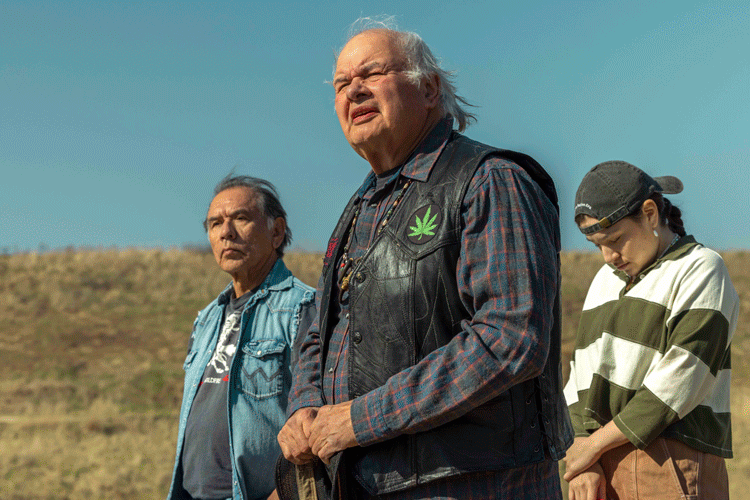A Quick Rerun Through the New TV Ratings System
- Share via
Better late than never, I guess, for a TV ratings system. For some reason, the previous informal system of “That Show Stinks” or “Hey, That Show’s Pretty Good” is no longer adequate. From now on, all shows (except those made specifically for children) will get one of these ratings:
* TV-G (for all ages);
* TV-PG (parental guidance suggested);
* TV-14 (may be inappropriate for children under 14); and
* TV-M (for adults).
The system is designed to mollify parents who have grown fearful that TV has become coarser and more harmful to children. For example, the police series “NYPD Blue,” with its salty language and occasional bared buttocks, now will get an admonishing TV-M rating. Implicit in the new ratings system is a longing for the good old days of the 1950s and early ‘60s when TV programming was light and breezy.
How memories fade!
Consider this list of popular shows from yesteryear and how they would have fared under the new ratings code.
“The Beverly Hillbillies.” On the surface, a charming sitcom about rural Americans. In reality, the series presents a profoundly disturbed family, with Jed Clampett allowing daughter Elly May, notoriously naive, to run around her Beverly Hills 90210 mansion in skin-tight shorts. Meanwhile, turbo-charged womanizer Jethro (Elly May’s cousin, no less!) lives under the same roof. For sexual innuendo alone, TV-M.
“Twilight Zone.” This series trots out an endless stream of human depravity--from greed to bigotry to pettiness to self-indulgence. Week after week, mankind’s dark side is revealed, leaving youngsters with a bleak view of their society. TV-M.
“The Rifleman.” A violent program cynically camouflaged as family entertainment. While presumably learning lessons about life, young Mark can’t help but notice that his father seems to get his best results when he whips out that rapid-fire rifle strapped to his hip. At some point, the boy has got to wonder why his father spends 25 minutes of every program sounding like Khalil Gibran and the last minute like Billy the Kid. For its suggestion that violence is the best solution, TV-M.
“My Friend Flicka.” The series depicts itself as “the story of a horse and the boy who loves her.” Need we say more? TV-M, but only because TV-X isn’t an option.
“Father Knows Best.” This sorry polemic on our patriarchal society may do more harm than every shoot-’em-up show on the air. The title alone is an affront to every woman in America. And why is the son given the sturdy nickname “Bud” while the two daughters are “Kitten” and “Princess?” Yuck. For its gender-stereotyping impact on all prepubescent teens, TV-M.
“Maverick.” Using humor as an irresistible lure, this series glorifies gambling as an honorable profession. The hero is a cardsharp who doesn’t always deal from the top. Poor role model for youngsters looking for meaningful vocations. TV-M.
“Bewitched.” One of the most subtly dangerous programs on the air. The show celebrates witchcraft and trickery as means to achieving goals. Ultra-feminists may love the way the producers use Samantha’s power as a thinly veiled metaphor for mastery over ineffectual men, but traditionalists take note. TV-M.
“Naked City.” Murderers, hoodlums, con men, hookers. This series has all of them, made all the more provocative by the series title. The show’s slogan, “There are 8 million stories in the Naked City,” imparts the message that everyone in New York has a tawdry tale to tell. TV-M.
“Car 54, Where Are You?” Supposedly vaudevillian in its comedy, this is another of the “knock New York” series. What else are youngsters supposed to think when every show includes the lyric, “There’s a fire in the Bronx/Brooklyn’s broken out in fights . . . “ Rather than contributing to a healthy respect for law enforcement, the weekly episodes depict policemen as boobs. Could any youngster respect a police officer named Gunther Toody? TV-M.
“The Many Loves of Dobie Gillis.” When we need to be teaching abstinence and responsibility to our teens, this sends the wrong message. Dobie is interested in nothing but wine, women and song and, besides, he hangs around with that shiftless Maynard G. Krebs. Unfortunately, the show will appeal both to youths’ natural rebelliousness and the sense that their parents know nothing. TV-M.
“Gilligan’s Island.” Veritable encyclopedia of individual identity crises and cliches. The authority figure (Skipper) is befuddled; the intelligent one (Professor) is repressed; the beauty (Ginger) is brainless; the dope (Gilligan) succeeds in spite of his stupidity; the rich man (Thurston B. Howell) is vacuous. For the confusion and hopelessness it is sure to engender in our youth, TV-M.
Dana Parsons’ column appears Wednesday, Friday and Sunday. Readers may reach Parsons by writing to him at The Times Orange County Edition, 1375 Sunflower Ave., Costa Mesa, CA 92626, or calling (714) 966-7821.
More to Read
The complete guide to home viewing
Get Screen Gab for everything about the TV shows and streaming movies everyone’s talking about.
You may occasionally receive promotional content from the Los Angeles Times.






